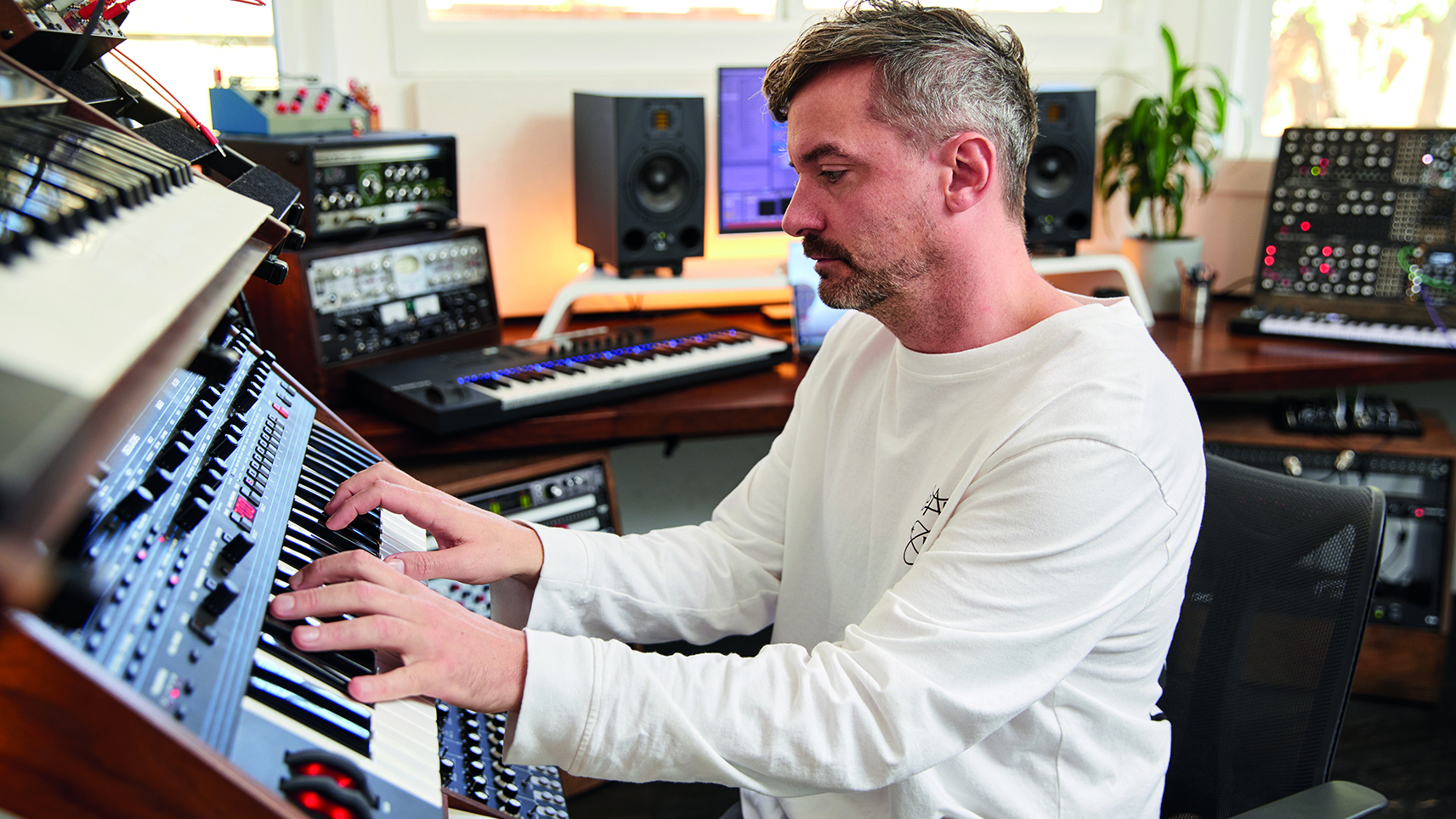“It was the first piece of gear that I got in New York - it had this thunderous low end to it”: How a Prophet-5, a kalimba and a prog rock sample inspired the genesis of Bonobo’s biggest track
Bonobo appeared on the Tape Notes podcast to discuss the making of new single Expander and fan favourites from Black Sands and The North Borders

Want all the hottest music and gear news, reviews, deals, features and more, direct to your inbox? Sign up here.
You are now subscribed
Your newsletter sign-up was successful
Electronic artist Bonobo has made an appearance on the Tape Notes podcast, diving into the genesis of his new song Expander and discussing the making of some of his most popular tracks, including Cirrus from 2013 album The North Borders.
Whether you’re a Bonobo fan or not, you’ve probably heard the song Cirrus before; as Tape Notes host John Kennedy points out, the track was seemingly everywhere for a brief period in the mid-’10s, soundtracking everything from festival DJ sets to café playlists.
In the interview, Bonobo reveals that Cirrus was the first song he wrote in a new home studio space after a move to New York. “First day in my apartment, I set up a studio, which was just a Mac G4 and a pair of monitors - I had a Prophet-5 and a couple of other bits,” he says.
Once his studio was set up, Bonobo says the first thing he did was head to a musical instrument store on the Lower East Side, where he stumbled on an instrument that would go on to spark the genesis of Cirrus, and with it the remainder of The North Borders: the humble kalimba.
“It’s an african thumb piano,” he says. “It’s got hammered tines, similar to a Rhodes or a Wurlitzer, and you pluck it - it’s a wooden board with these tines nailed to it, and you pluck them with your thumbs.”
A shimmering piece of crystalline house music, Cirrus is composed of multiple layers of samples, augmenting its lead kalimba line with bells, chimes and percussion to create a richly textured, shifting tapestry of twinkling sounds. The track’s flowing groove is created by the rhythmic interaction of these parts with a drum sample, which Bonobo says came from a prog rock record.
“I recorded a load of [the kalimba] and then I just chopped up a couple of parts. But really, what I was trying to do here was, I had this drum beat, which I sampled from a record that I found in a record store in Seattle.
Want all the hottest music and gear news, reviews, deals, features and more, direct to your inbox? Sign up here.
“The whole idea of the track initially was to take this drum beat and loop it, and every transient of that drum break, I was gonna edit the kalimba along to it. So rather than having things sequenced, I was going to map the kalimba transients to the transients of that drum break. That was the start of the track.”
Once he had the main groove down, Bonobo says he harmonized the kalimba with a bassline produced by his Prophet-5, a recent acquisition at the time. “It was the first piece of gear that I got in New York,” he says. “It had this thunderous low end to it. It was just the kalimba and the drum break, and then this bass, those three bass notes.”
“There’s not a load going on, really,” Bonobo says of the track. “The thing about this was, it happened so fast. It happened in one day from start to finish, one or two days. I was having such a good time making it that I was kind of sad when it was done.”



I'm MusicRadar's Tech Editor, working across everything from product news and gear-focused features to artist interviews and tech tutorials. I love electronic music and I'm perpetually fascinated by the tools we use to make it.
